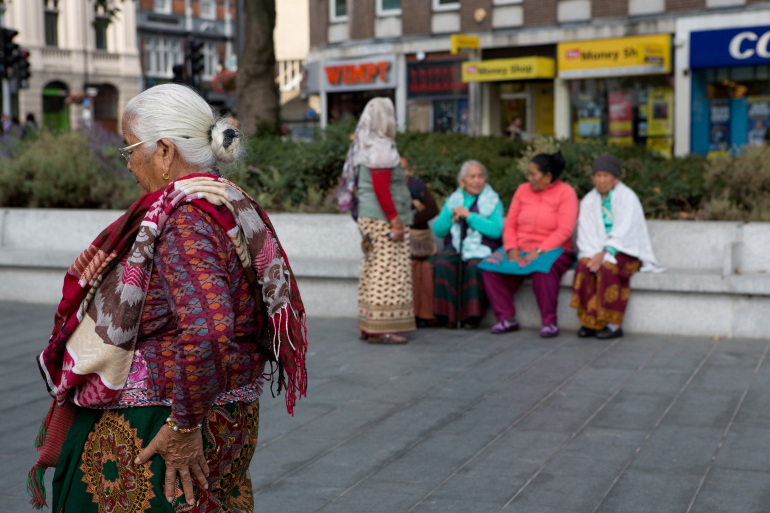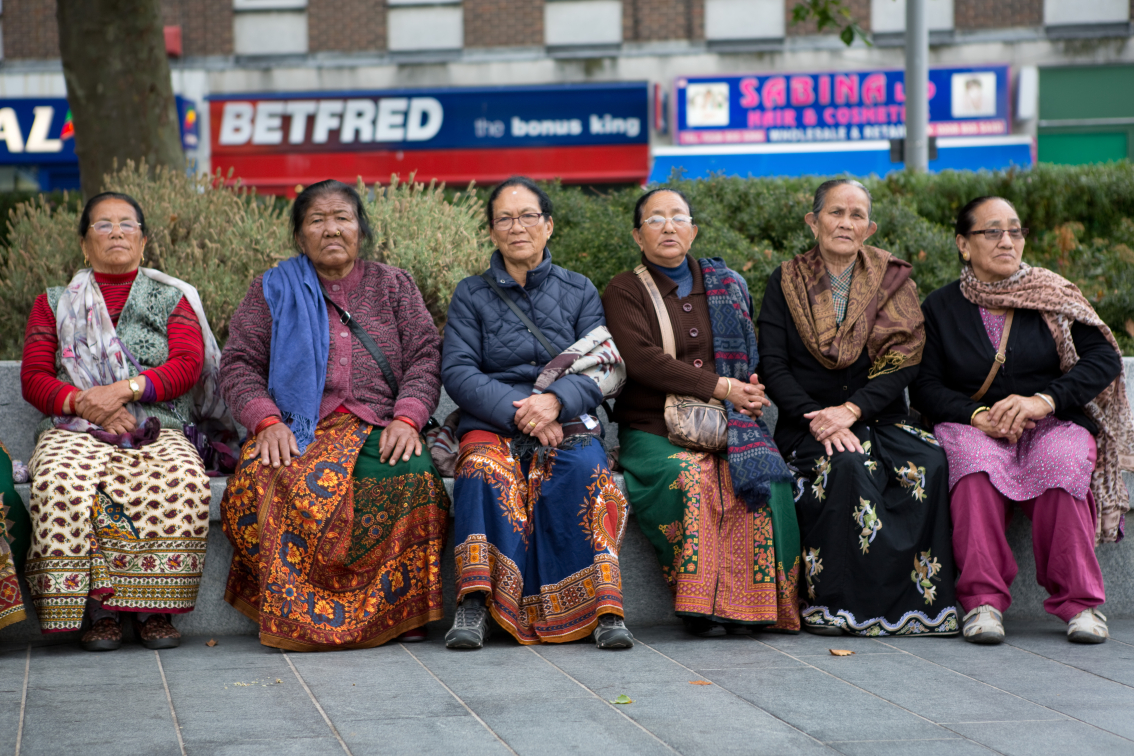“If you see a thousand faces then it is good for you”
This four-minute film shows the brightness of lungi fabric against long cold granite benches in a square in East London. A group of older women chat and laugh as they spend time here, amongst a busy mix of commuters and school kids, pigeons and dogs.

Watch clip of Alone Together: the Social Life of Benches
This is a four minute edit of a longer 18 minute film Alone Together: The Social Life of Benches, directed by Esther Johnson. The film was made in 2015 as part of The Bench Project, a collaboration between the Department of Landscape with The Young Foundation, Greenwich Inclusion Project, Sheffield Hallam University and the University of Sussex.
The Ghurkha settlement of 2009 gave ex-Gurkhas and their wives or widows the right to live in the UK. Many chose to move to Woolwich, to join the small Nepali community that already lived here on account of military connections with the Woolwich Arsenal. What is it like to be an older migrant, to move in your later years from a village in rural Nepal to Woolwich London? How do you cope when you can’t speak English, your housing is crowded, and you are beyond the age of finding work?
The women in this film talk about finding company and relaxation by sitting outside in Gordon Square. Many come here on a daily basis though the summer months, both men and women gathering in large groups, sharing news, discussing problems, passing the time of day and watching the rolling news or sport on the ‘big telly’. “When I sit at home it’s lonely, there are worries I think of”. A park is a new kind of social space for them, “there are no such places in Nepal… if there is empty land then people talk about farming there”, but they appreciate the openness, the flowers and trees, and the long benches which allow them to move in and out of conversations of varying group sizes.
Gordon Square is a place that includes rather than excludes. The Nepali elders are not tucked away in a hall or community centre, but a visible and engaged presence within the diverse mix of Woolwich residents. People of all ages and backgrounds hang out here, it’s big enough for small children, teenagers and older people all to take up space without too much bother, but small enough that people make incidental connections. “Some people are nice, they say ‘Morning’ when they pass us. So we say ‘Morning’ as well. If we knew how to speak English, we could be friends with others”.
It’s difficult to make new friends when you don’t have a language in common. But Gordon Square – and similar public spaces in other cities - offers something slightly different: the chance to belong within the urban flow, the chance to enjoy the sunshine, and to fashion your own peaceful place.
The fieldworker and translator for the Bench Project was Samprada Mukhia who worked for Greenwich Inclusion Project. The research project was funded through the Arts and Humanities Research Council Connected Communities programme. It was lead by Clare Rishbeth, Department of Landscape, in collaboration with The Young Foundation, Greenwich Inclusion Project, Sheffield Hallam University and the University of Sussex. A copy of the report: Benches for everyone: Solitude in public, sociability for free is available here. More information about the Bench Project on the project website here.
